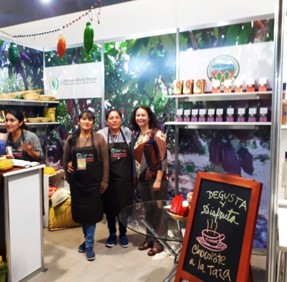With Lutheran World Relief, Cultural Practice is building the capacity of cacao and coffee cooperatives throughout Latin America to address gender inequalities in their production and marketing activities. In Peru, the team is working with the Q’Ori Warmi cooperative in the VRAEM (Valle de los Ríos Apurímac, Ene y Mantaro) an area of high poverty and malnutrition and known for being one of the country’s major coca-growing regions. CP led representatives from this women-led cacao cooperative through a gender gap analysis that identified women’s lack of participation in the commercialization of cacao as one of the key constraints facing the cooperative’s growth. With continued support from LWR, Q’Ori Warmi has developed a plan to address this constraint, among others, with the hope that it will enable the cooperative to provide prosperous, equitable, and alternative livelihoods for its members and their families.
This activity is part of a broader collaboration between LWR and CP to develop a toolkit that agricultural cooperatives can use to conduct a gender gap analysis and address gender inequalities in their work and communities. The toolkit is based on USAID’s Promoting Gender Equitable Agricultural Value Chains handbook, which CP co-authored, and is being adapted and modified based on work with cooperatives in Peru, Nicaragua, Honduras, and Guatemala.
The final toolkit is expected in 2019.
Photo: Women from the Q’Ori Warmi Cooperative, who participated in the workshop in Peru, photographed at the Salon del Cacao y Chocolate in Lima with Cristina Manfre (right).

